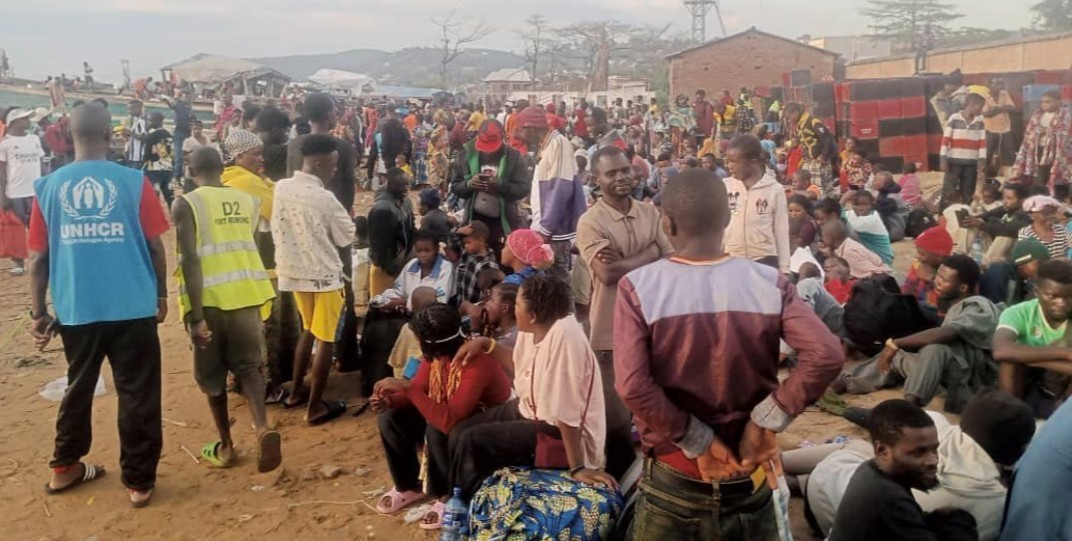Why Kenyans in informal sector are reluctant to register with SHIF

Wanjiru fears that the new payment requirements may place too much burden on her already strained finances.
In October, the launch of the Social Health Insurance Fund (SHIF) marked a significant step toward improving healthcare access for Kenyans, especially those in the informal sector.
As the scheme officially rolled out on October 1, 2024, many formal sector employees had their contributions automatically deducted from their salaries.
More To Read
- KNCHR says Kenyans still locked out of healthcare despite Sh138 billion SHA boost
- MPs ditch SHA, the public health scheme they once praised, and opt for private cover
- How Trump–Ruto health deal fills the void left after USAID exit
- MPs demand SHA clears Sh10 billion in pending NHIF bills within three months
- TSC confirms shift to SHA cover for teachers from December 1
- SHA transition sparks tension as teachers cite lack of consultation, legal violations
However, a large portion of informal sector workers have yet to register, update their accounts, or make any contributions.
A survey conducted by The Eastleigh Voice found that some Nairobi residents are hesitant to join the scheme, mainly due to concerns about the financial burden that comes with it, particularly since each household is now required to register separately under the new system.
The SHIF Act 2023 defines a "household" as a social unit consisting of an eligible contributor and their beneficiaries, including those with similar socioeconomic needs. Notably, the Act also considers all Kenyans over the age of 25 as distinct households.
Philcollince Jole, a nut seller in California Ward, Nairobi, lost his job in 2022 and has been struggling to regain his financial footing ever since.
As a result, he defaulted on his NHIF payments and has not updated his account under SHIF.
Jole says his reluctance to join the new health insurance scheme stems from his difficult financial situation.
"There are many things that need my attention, and I feel this is just adding to the burden I already have. If I had a stable job and I could afford to meet all my needs, it would be easier. But that's not the case now," Jole explains.
Inadequate medicines
Jole also points out that a major source of his reluctance to join SHIF is the ongoing issue of inadequate medicines in public hospitals.
Even when he was enrolled in NHIF, he often had to purchase medicine from pharmacies as many public hospitals lacked essential drugs.
"Despite contributing to NHIF, I still had to pay out of pocket for part of my medical bills," he notes.
Many informal sector workers share similar concerns, especially about the perceived lack of clear information.
"All Kenyans want to know is whether there is a guarantee that things will be different. We didn’t see the government or relevant authorities coming to the grassroots," says Jole.
Ester Wanjiru, a bead artist in Nairobi’s Majengo Highrise, Kamukunji Sub-County, also expresses concerns about SHIF.
With many dependents relying on her, she finds the new reforms, which consider everyone over 25 as part of a household, overwhelming.
"It's not very clear whom the government is covering — whether unemployed people are included in this category, how it works, and how much will be paid for them," Wanjiru says.
"Once everything is clearer, more flexible, and less stressful, it will be easier to accept and embrace the scheme."
Burden on finances
Wanjiru fears that the new payment requirements may place too much burden on her already strained finances.
"From where I stand, I feel like this will be a burden for me, and I may not sustain the payments when I don’t have the money," she says.
Jecinter Wambua, a salaried worker in Nairobi, expresses concern that salaried Kenyans continue to bear the financial burden for the informal sector, as they have traditionally done under the NHIF system.
"If you’re employed, deductions are easy to make, but in the informal sector, enforcing payments could be a challenge, especially since it depends on individuals’ incomes and the information they choose to provide," she explains.
Wambua also wonders how the government will enforce the payment system in the informal sector.
"We’ve seen situations where Kenyans take loans and fail to pay them back. How will the government enforce these payments in the informal sector? What if people choose not to register and opt for private medical care? In the end, salaried Kenyans still end up carrying the heavy burden," she says.
Her appeal is for the contribution amount to be made simpler and more affordable so that more people can easily join the scheme.
In response to these concerns, the government has pledged to make healthcare more accessible for enrolled individuals. Health Cabinet Secretary Deborah Barasa assured the public that by December, primary healthcare facilities at levels 2 and 3 will be properly stocked with essential medicines, enabling citizens to receive treatment closer to home.
"I want to assure you that the facilities will be properly equipped with medication by December," Barasa confirmed.
The Ministry of Health has also introduced a reform under the Social Health Insurance Fund, allowing individuals to pay their premiums in more affordable monthly instalments.
This change addresses a key challenge faced during the initial SHIF rollout, where the requirement for an upfront annual payment proved too burdensome for many in the informal sector.
Purchase medicine
However, a health worker at a level 2 facility, who wished to remain anonymous, noted that while consultation is free in many primary healthcare facilities, patients will still be required to purchase medicines unless a policy change occurs.
"When we talk about free medication at this dispensary, it’s mainly consultation, and then we write prescriptions for patients to buy their drugs. Unless there's a policy change, I don’t anticipate any major changes," the health worker said.
The health worker also mentioned that essential medicines, such as paracetamol for children, are often in short supply, and other basic treatments, like deworming drugs and vaccines, are lacking.
While the government is working on ensuring that primary healthcare facilities are adequately stocked, many are waiting to see whether these changes will result in tangible improvements at the local level.
The focus on primary care is part of the broader goal of strengthening the healthcare system, ensuring that all Kenyans, including those in marginalised communities, can access quality care.
By the end of October, over 2,598 health facilities had submitted claims totalling over Sh1.6 billion through the Social Health Authority (SHA) portal, with over 12 million registered members.
Inpatient services accounted for the largest portion of claims, totalling over Sh1.3 billion, followed by outpatient services, which amounted to about Sh242 million. Capitation claims were significantly lower at Sh1.3 million.
Other notable claims included Sh152.3 million for 9,200 maternity, neonatal, and child visits and more than Sh213 million for over 18,000 dialysis sessions. Haematology-oncology treatments generated claims of Sh161 million from over 5,000 visits, while mental wellness services accounted for Sh100 million. Surgical services, including orthopaedics (Sh75 million), general surgery (Sh59 million), gynaecological surgery (Sh31 million), and neurosurgery (Sh22 million), also contributed to the total claims.
Private hospitals lodged the highest claim values at Sh773 million, followed by public hospitals at Sh674 million, faith-based hospitals at Sh204 million, and community hospitals at Sh17,000.
The portal currently has over 4,540 enrolled healthcare providers, with around 3,963 successfully logging in.
Top Stories Today













































